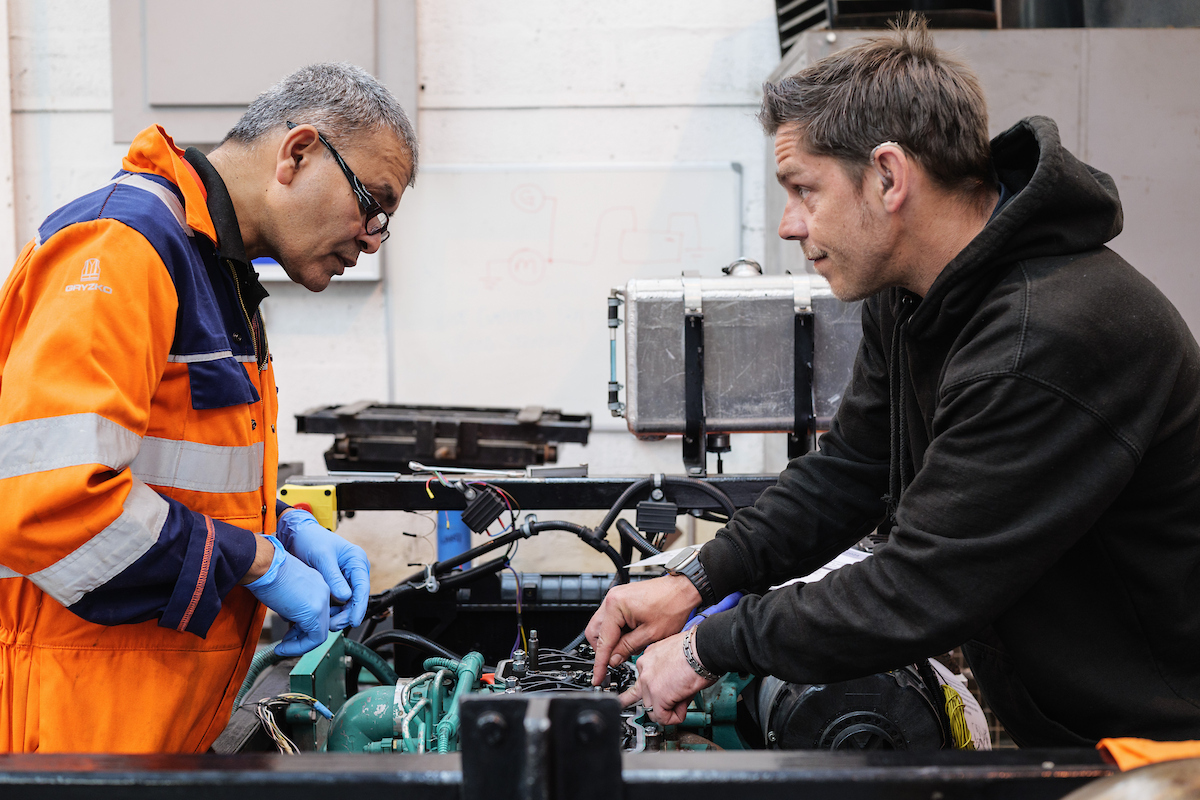Mentoring is defined as a professional relationship where a more experienced individual, the mentor, provides a range of guidance, support, and advice to a less experienced person their mentee

The professional relationship of mentoring is rooted in mutual respect with a focus on both personal and professional development. Unlike training, which often targets specific skills, mentoring takes a holistic view by helping the mentee navigate their career path, develop self-awareness, as well as aiding mentees in developing both their technical and soft skills. A successful mentoring relationship offers the mentee a chance to learn from real-world experience, while mentors reinforce their own knowledge and gain satisfaction from contributing to the growth of the profession.
Why Mentoring is Essential for Engineers
Throughout engineering, mentoring has always played a pivotal role in shaping the next generation of professionals. It’s more than a transfer of technical expertise, it’s about cultivating the critical thinking, leadership, and adaptability needed to tackle today’s complex challenges. Engineers operate in a dynamic environment, where rapid advancements in technology and changing industry regulations require a continuous developing mindset and the desire to learn. A good mentor helps bridge this gap, offering insights and support that go beyond traditional formal education or training programmes can provide.
The Data Speaks: Why Mentoring Matters
Recent research highlights the tangible benefits of mentoring. A five-year study by Gartner found that 25% of employees who participated in mentoring programmes experienced a increase in salary, compared to just 5% of those without a mentor. Additionally, mentees were, on average, promoted five times more often than non-participants. Even more compelling, retention rates were 22% higher for mentees and 20% higher for mentors, underscoring that mentoring doesn’t just develop careers—it helps build lasting professional relationships.
A Boundaryless Approach to Mentoring
Mentoring today goes beyond traditional hierarchy dynamics. It’s evolving into a multifaceted exchange that crosses discipline, geography, and seniority boundaries. Engineering is a global profession, where solving complex problems often requires cross-disciplinary thinking and collaboration on a internation scale. With virtual and remote working now commonplace, mentoring is no longer limited by physical location. A mentor in one country can guide a mentee in another, bringing together diverse perspectives and experiences.
There are two key shifts in mentoring dynamics that are reshaping how engineers engage in these relationships:
- Global and Virtual Mentoring: Virtual mentoring has opened opportunities for engineers to connect across borders. This global perspective enriches the mentoring experience, exposing professionals to different approaches, regulatory landscapes, and problem-solving strategies they might not encounter locally.
- Interdisciplinary and Cross-Generational Exchange: It’s no longer just about senior engineers guiding juniors. Reverse mentoring is gaining traction, where newer professionals share digital or emerging knowledge with senior leaders. Additionally, peer-to-peer mentoring is thriving, enabling engineers at similar stages to support each other through new challenges.
Practical Tips for Engineering Mentoring Success
To make the most of mentoring, consider these strategies tailored for the engineering profession:
- Set Clear Expectations: Define specific SMART goals, whether it’s working towards professional registration, gaining a new technical skill, or developing leadership qualities. Setting expectations helps keep the relationship focused and productive.
- Balance Technical and Soft Skills: While technical proficiency is crucial, soft skills, such as communication, teamwork, and decision-making, are vital. These traits often distinguish exceptional engineers from competent ones.
- Embrace Curiosity and Openness: Engineering is an ever-evolving field. A successful mentoring relationship should encourage exploration and curiosity. Whether it’s a new piece of tech, an innovative methodology, or a novel regulatory change, maintaining an inquisitive mindset will benefit both parties.
Why Engineers Should Mentor and Be Mentored
Mentoring offers benefits at every stage of an engineer’s career. For early-career professionals, it provides direction, builds confidence, and helps navigate complex certification and registration processes. For senior engineers, mentoring is an opportunity to give back, refine leadership skills, and gain fresh perspectives from emerging talent.
Mentoring is also instrumental in addressing broader industry challenges, such as improving diversity in engineering roles. According to a report from the National Academies, effective mentoring can significantly increase the retention and advancement of underrepresented groups in STEM, making it a powerful tool for driving inclusion and equity in the profession.
Mentoring is boundless
Mentoring knows no bounds - professionally, geographically, or even in terms of purpose. For engineers, it’s about nurturing talent that’s equipped to tackle today’s challenges and prepared for tomorrow’s uncertainties. As our Engineering becomes more interconnected and complex, mentoring will be the foundation on which future engineering leaders are built.
To support this, the Society of Operations Engineers (SOE) is launching a new mentor matching service for members in Q4 of 2024, designed to foster meaningful connections, support professional development, and ensure engineers at all levels have access to the guidance and support they need.
By embracing these evolving dynamics, we can ensure that mentoring is not just a tool for career growth but a lifelong commitment to professional excellence and community building.
